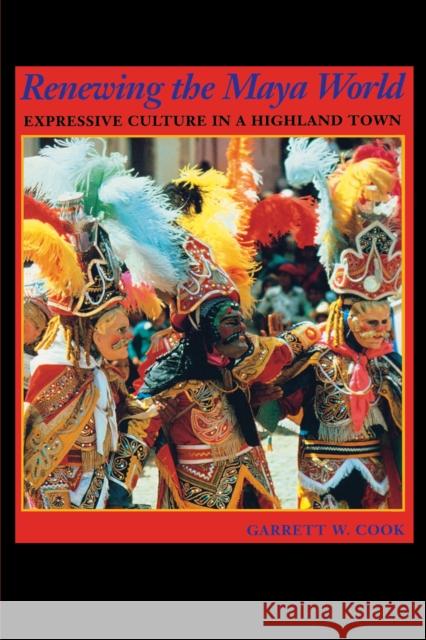Renewing the Maya World: Expressive Culture in a Highland Town » książka
Renewing the Maya World: Expressive Culture in a Highland Town
ISBN-13: 9780292712256 / Angielski / Miękka / 2000 / 304 str.
Each year in the Highland Guatemala town of Santiago Momostenango, Maya religious societies, dance teams, and cofradias perform the annual cycle of rituals and festivals prescribed by Costumbre (syncretized Maya Christian religion), which serves to renew the cosmic order. In this richly detailed ethnography, Garrett Cook explores how these festivals of Jesucristo and the saints derive from and reenact three major ancient Maya creation myths, thus revealing patterns of continuity between contemporary expressive culture and the myths, rituals, and iconography of the Classic and Postclassic Maya. Drawing on fieldwork conducted in the 1970s and renewed in the 1990s, Cook describes the expressive culture tradition performed in and by the cofradias and their dance teams. He listens as dancers and cofrades explain the meaning of service and of the major ritual symbols in the cults of the saints and Jesucristo. Comparing these symbols to iconographic evidence from Palenque and myths from the Popol Vuh, Cook persuasively argues that the expressive culture of Momostenango enacts major Maya creation myths--the transformative sunrise, the representation of the year as the life cycle of anthropomorphized nature, and the erection of an axis mundi. This research documents specific patterns of continuity and discontinuity in the communal expression of Maya religious and cosmogonic themes. Along with other recent research, it demonstrates the survival of a basic Maya pattern--the world-creating vegetative renewal cycle--in the highland Maya cults of the saints and Jesucristo.











